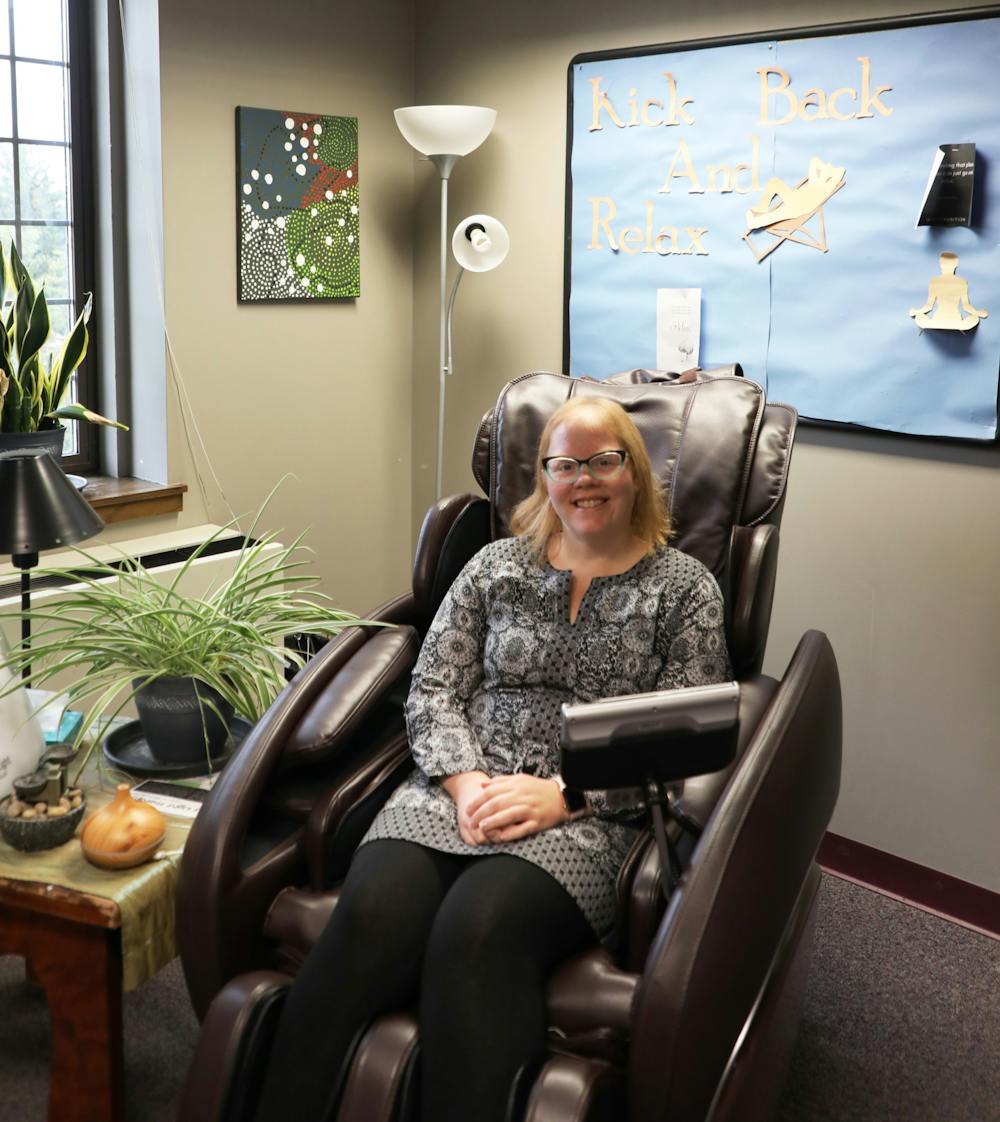Ball State’s Counseling Center has launched its Self-Care 101 program in conjunction with the start of the academic year. This new program, located on the Canvas learning management system, provides resources for students to learn and improve their self-care practices.
Aubrey Driscoll, associate director for prevention and wellness at Ball State, said Self-Care 101 came about because she wanted an option that was more versatile and accessible for students. Previously, the Counseling Center offered the Self-Care Challenge, which was a four-week challenge encouraging students to partake in different self-care strategies. The challenge, based on a workbook, was done entirely over email.
“It was the same content year in and year out,” Driscoll said. “It was just the same thing every year.”
Driscoll and her staff then decided to create their own program they could update and add to over time that meets the needs of students.
“We wanted something that could have a little bit more variety,” Driscoll said. “We didn’t want it to be stale.”
The program appears on the Canvas dashboard page like students’ classes. The program has modules dedicated to sleep, hygiene, self-compassion, time management and organization. The modules include videos, infographics and “tools to use” that range from goal-tracking sheets to directions for box breathing — an exercise when people hold their breath in for four seconds, hold in for four seconds, breathe out for four seconds and hold for four seconds.
Driscoll also said setting up the program on Canvas allows students to access a resource from the Counseling Center that doesn’t require them to set up an appointment. The on-demand nature of the course allows students to access it however they wish to, and it allows the Counseling Center to engage with the rest of the Ball State community.
Other colleges across Indiana have implemented similar programs to help students with their self-care and well-being. Purdue University started its Steps to Leaps program in 2019, a framework dedicated to improving well-being. In this vein, Purdue launched their own self-guided learning service in 2021.
Carl Krieger, director of residential education at Purdue, said these learning modules were created by students, for students. Like Ball State, some modules include information on sleep and time management. Purdue also has several other self-learning modules that focus on digital and financial well-being, stress management and building a network. These modules are hosted on Brightspace, Purdue’s learning management system.
Krieger said emotional support services are what students need on college campuses. He said one year, the winning ticket for Purdue’s student government ran on a platform that included increased wellness resources.
Since these modules launched, student organizations have used the self-guided learning modules for the development of their student leaders.
“When you see that students are focused on it, and then you see students actively pushing for themselves, then it becomes a no-brainer that this is something that you need to be focused on,” Krieger said.
Timothy Hess, Ball State’s associate director for clinical services, works a door over from Driscoll and has observed the program’s implementation firsthand.
“I think it’s great,” he said. “We know it’s not an effective mental health model for campus if the only time you get support is when you’re in our office talking to someone. When Aubrey developed the Self-Care 101 program, it really [was] a way for us to talk to campus and say, ‘Everyone could benefit from this. We can all benefit from some self-care tips; I can benefit from more self-care tips.’”
Hess said the structure of the program was designed to minimize barriers to access. As an online resource, students don’t need to worry about scheduling conflicts, difficulties commuting, or the emotional labor of face-to-face interaction. Mirroring this, the Counseling Center also offers on-demand workshops on its YouTube channel and website and has partnerships with mental health applications like Welltrack and Togetherall.
Driscoll said 160 students have joined the course so far. With the program in its first year, she hopes it will be able to grow with time and surveys will enable early adopters to offer feedback on the modules. She also wants the modules to be relevant and hopes to personalize them to students’ experiences and needs.
Driscoll said self-care is “paramount” for students all the time, even when they are not stressed. In fact, she said it is often the first thing students push aside when they are stressed, mostly because of negative perceptions of self-care. She hopes the Counseling Center will be able to help destigmatize it and inform students of its importance.
“We actually need self-care to be sustainable and to do the things that we want to do,” Driscoll said. “It doesn’t require students to have to make an appointment with us; it doesn’t require them to make any formal commitments to therapy or to treatment. It’s just something that as a student here, you have access to engage with however you see fit, in a way that benefits you for you, without any strings attached.”
Contact Grayson Joslin with comments at grayson.joslin@bsu.edu or on X @GraysonMJoslin and contact Colin Brown with comments at colin.brown@bsu.edu.





